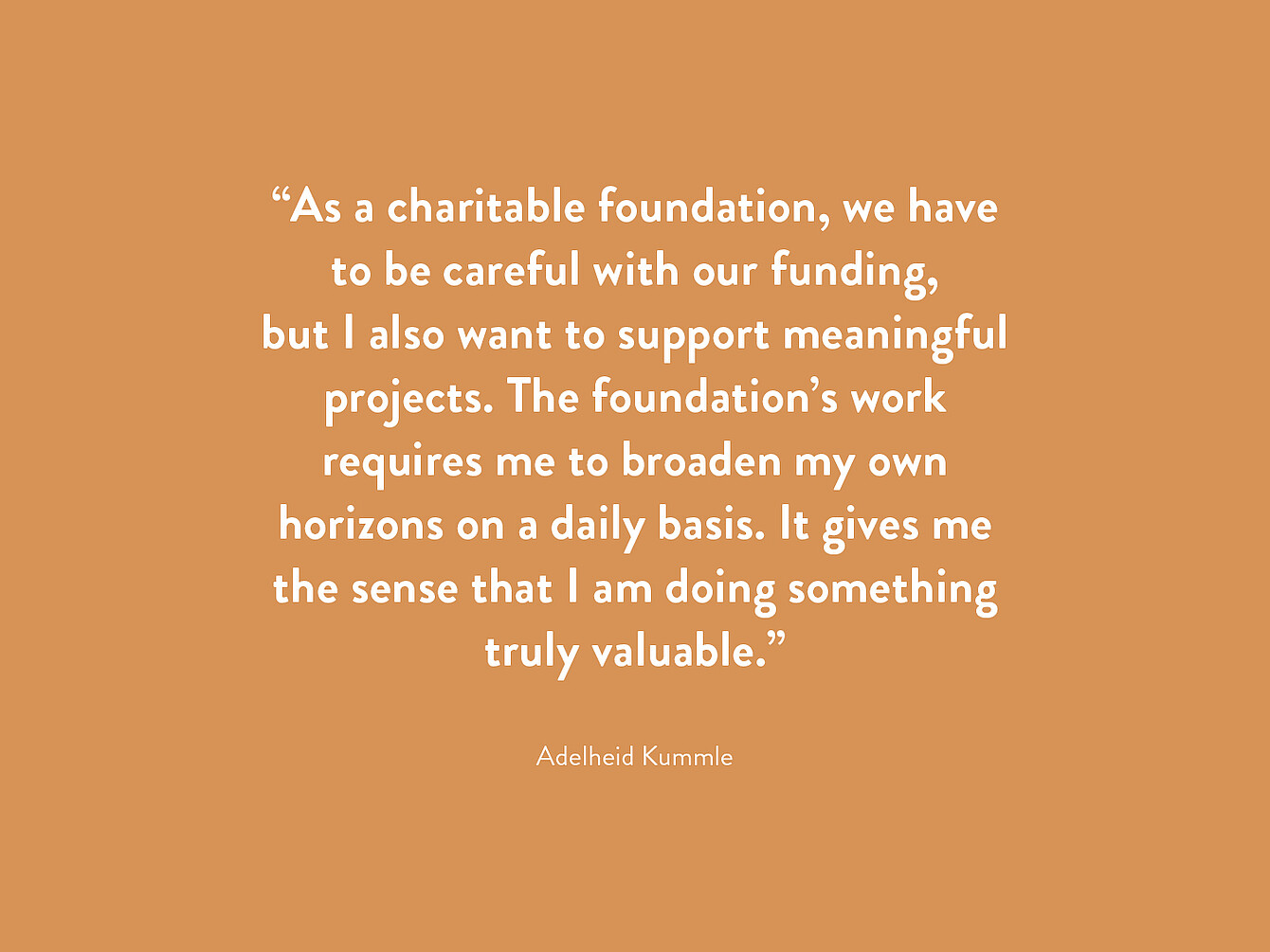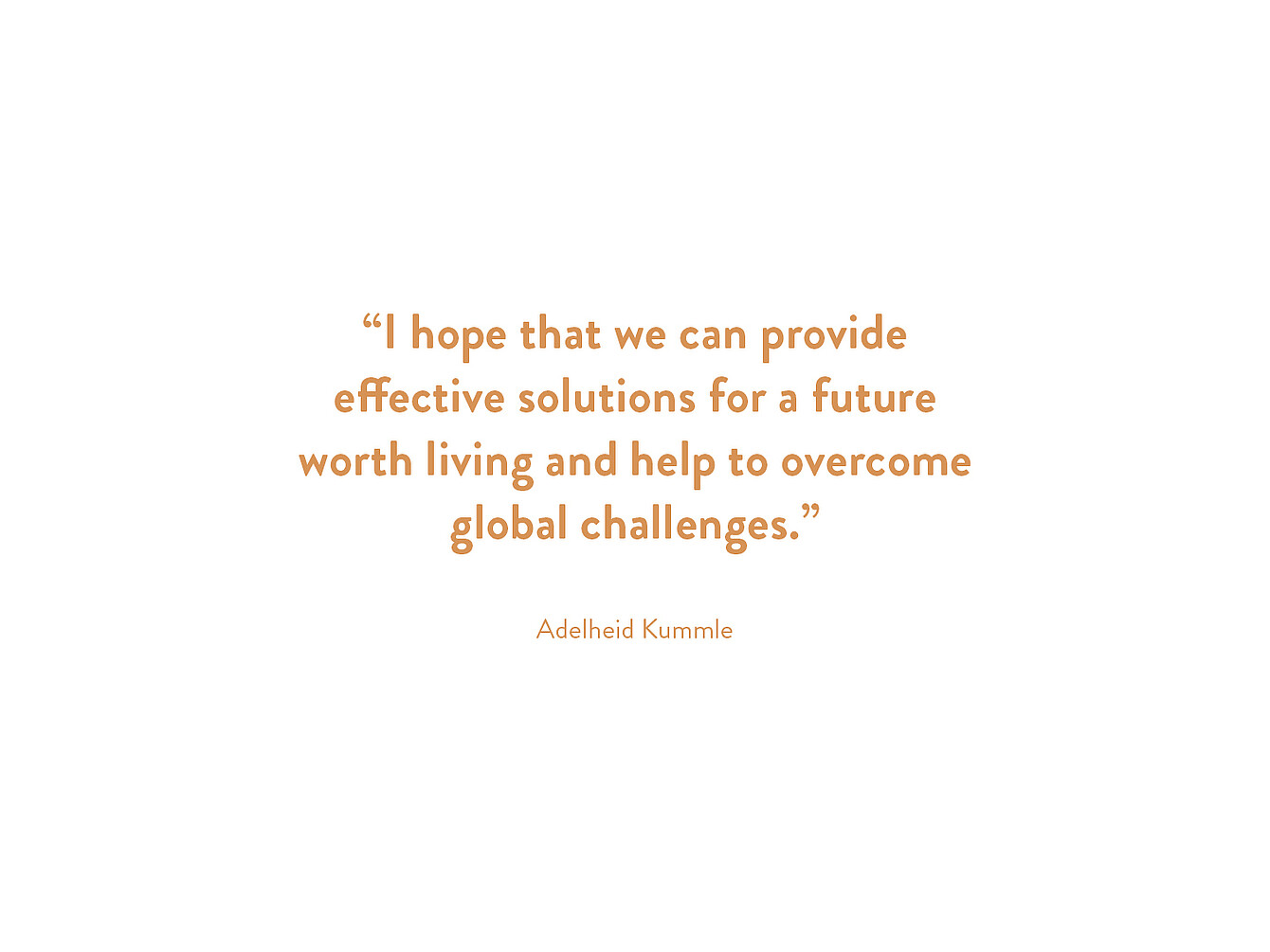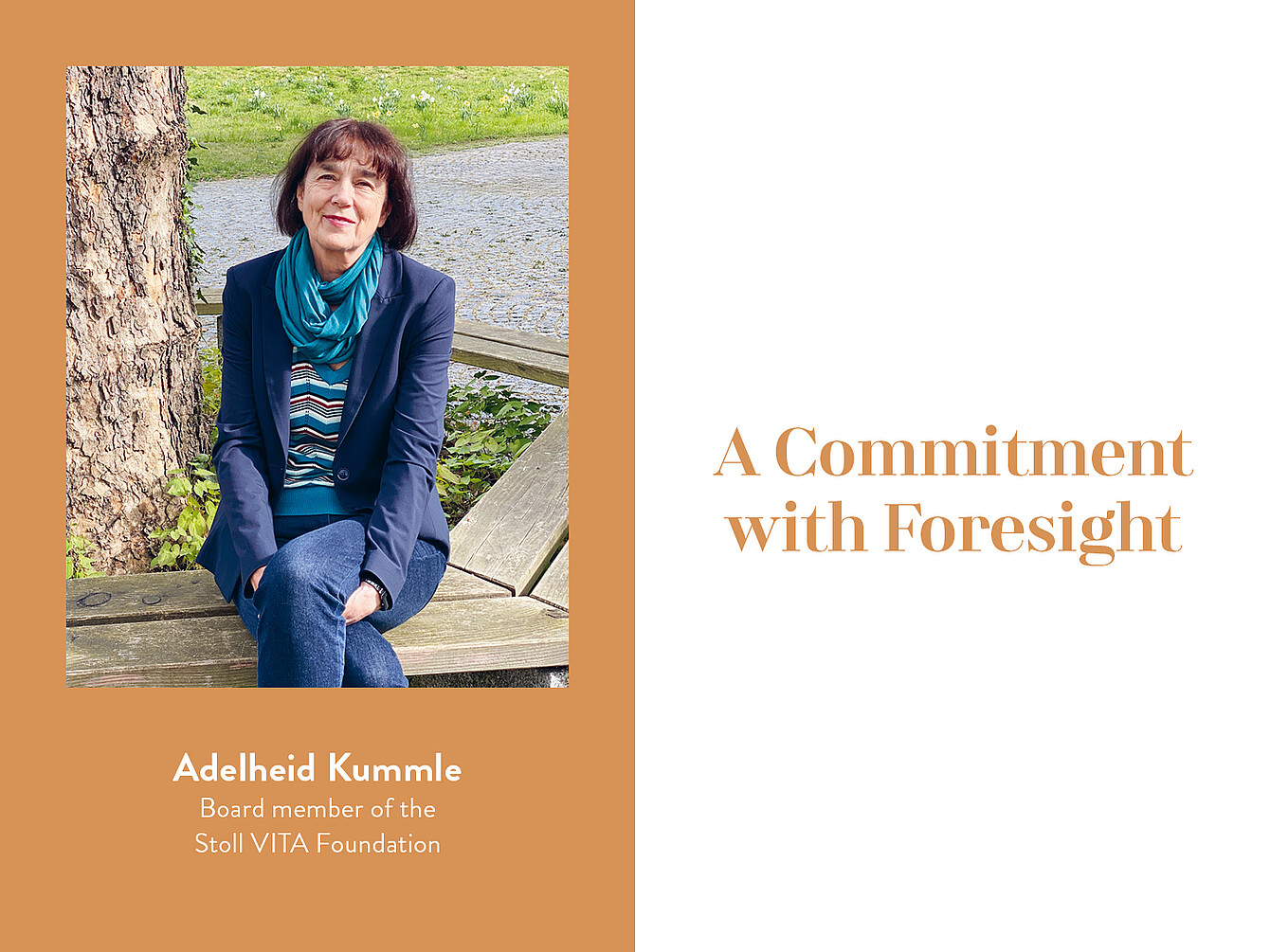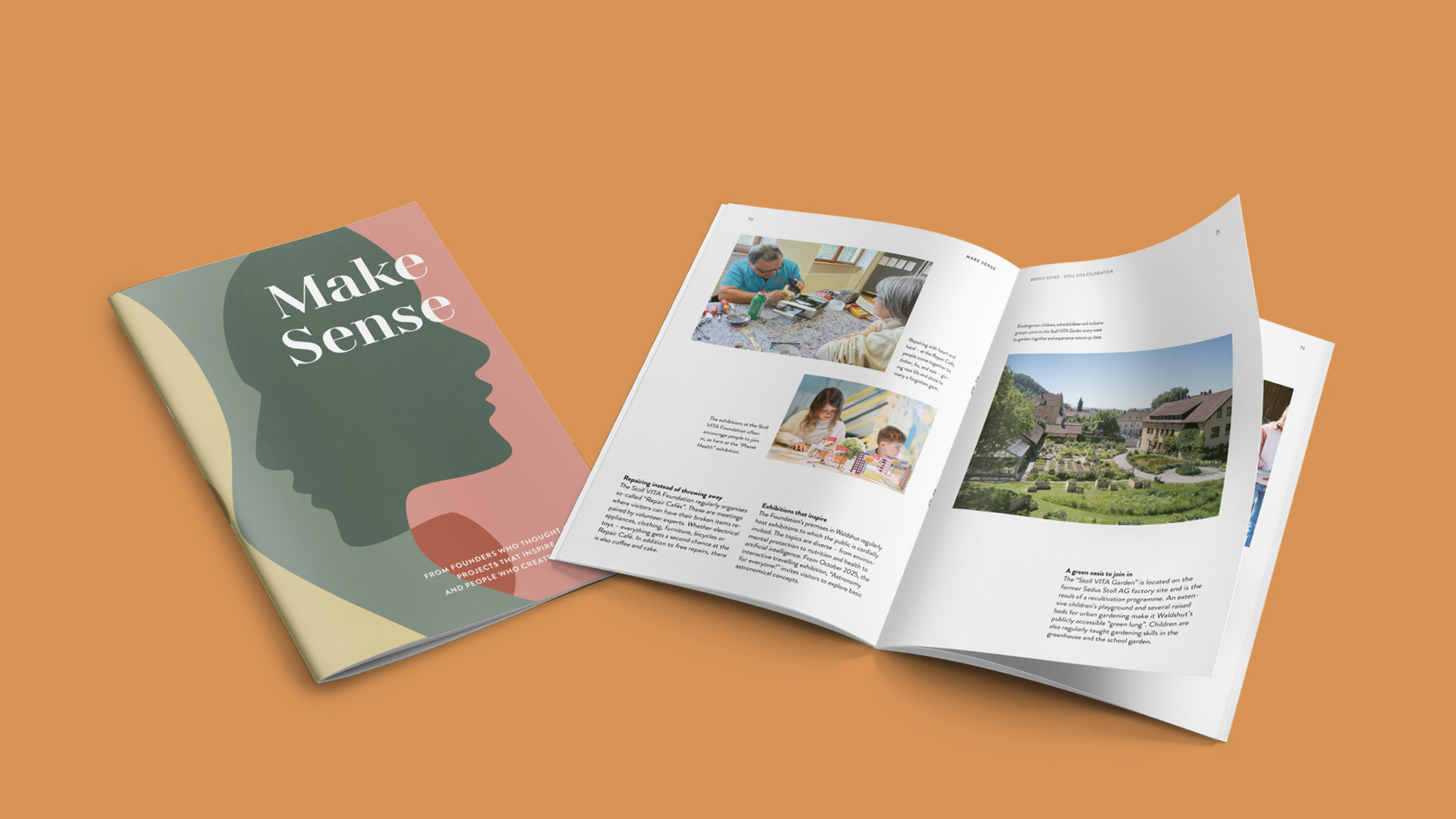Ms. Kummle, you have been a member of the Stoll VITA Foundation Board since 2011. What does foundation work mean to you personally?
The foundation’s work is multifaceted and offers numerous organisational opportunities. Organising the day-to-day operations – the numerous events such as lectures, concerts, as well as exhibitions designed especially to engage young people educationally – is something I find very exciting. I have a lot to do with people, for example when I guide groups or school classes through exhibitions. Of course, that means I need to prepare thoroughly in advance.
I also find it very gratifying to see how actively our large garden and our premises are used by the public and by numerous school classes. The funding requests we receive in the fields of medicine/health, education, environment, and nutrition are usually very interesting; I often dive deep into topics I might otherwise never encounter.

What does the Stoll VITA Foundation stand for today – and what perhaps distinguishes it from other foundations?
The fact that the founder couple had already contributed their entire assets to the charitable foundation during their lifetime sets the Stoll VITA Foundation apart from most other foundations. The company-affiliated Stoll VITA Foundation is based just a few kilometres from Sedus Stoll AG. A significant proportion of the profits generated by Sedus Stoll AG goes to the foundation as dividends and therefore flows back into the region.
The residents of Waldshut-Tiengen have daily access to a large garden with play equipment, urban gardening, a fountain and chickens; it is looked after by a full-time master gardener and herb educator who gardens every week with numerous children and an inclusion group.
The region also benefits from events, exhibitions and the provision of free rooms, and we are also pleased that we are always able to approve sponsorship projects in the Waldshut district, such as the planting of thousands of trees, purchases for schools and support for healthy meals for schoolchildren. But we also support many projects nationwide in the areas defined in our statutes.
Can the influence of the founders Christof and Emma Stoll, still be felt today? If so, how
I can answer this question with a very clear “yes”. The aims of the foundation, which the founders laid down in 1985, still apply today. I always remember how Emma and Christof Stoll were ahead of their time in their commitment to healthy eating and environmental protection back in the 1970s. Their ideas and goals continue to have an impact, and we are still trying to realise them. To mark the 100th anniversary of Emma Stoll’s birth, her significant cookbook promoting healthy eating was reissued.
The foundation extensively renovated and converted Emma and Christof Stoll’s home and then rented it out to a non-profit daycare centre. We are convinced that the couple would have welcomed this with great joy. We have also created the right environment for a public kindergarten to be run on our foundation premises.
For me, the fact that the foundation premises are located on the site where Christof Stoll was born and where the company history of today’s Sedus Stoll AG began also plays a role. It may sound a little foolish, but I can confidently say: “The spirit of Emma and Christof Stoll is always present!”

Is there a project that is particularly close to your heart? And if so, why?
The “Bundesverband Kinderhospiz e. V.” in Lenzkirch and the “Kinderkrebszentrum Hamburg gGmbH” are particularly close to my heart. My two-year-old grandson was diagnosed with leukaemia shortly after the substantial funding for both organisations was approved. He has since recovered from the disease, but when you experience for yourself what a serious blow it is when a child suffers a life-threatening illness, you realise once again how sensible it is to support such projects
If you had to explain to a young person why foundations are needed, what would you say?
Foundations existed in Egypt and Mesopotamia in the third millennium BC. Even then, foundation assets were private and did not come from the state budget. The strength of foundations to this day is that they are independent and can make decisions freely. They are an expression of civic engagement and democratic participation. Foundations can promote charitable causes in the long term. They can solve social problems for which the state does not consider itself responsible, or only to a limited extent, as this would overburden it both financially and in terms of personnel.

social media channels:


